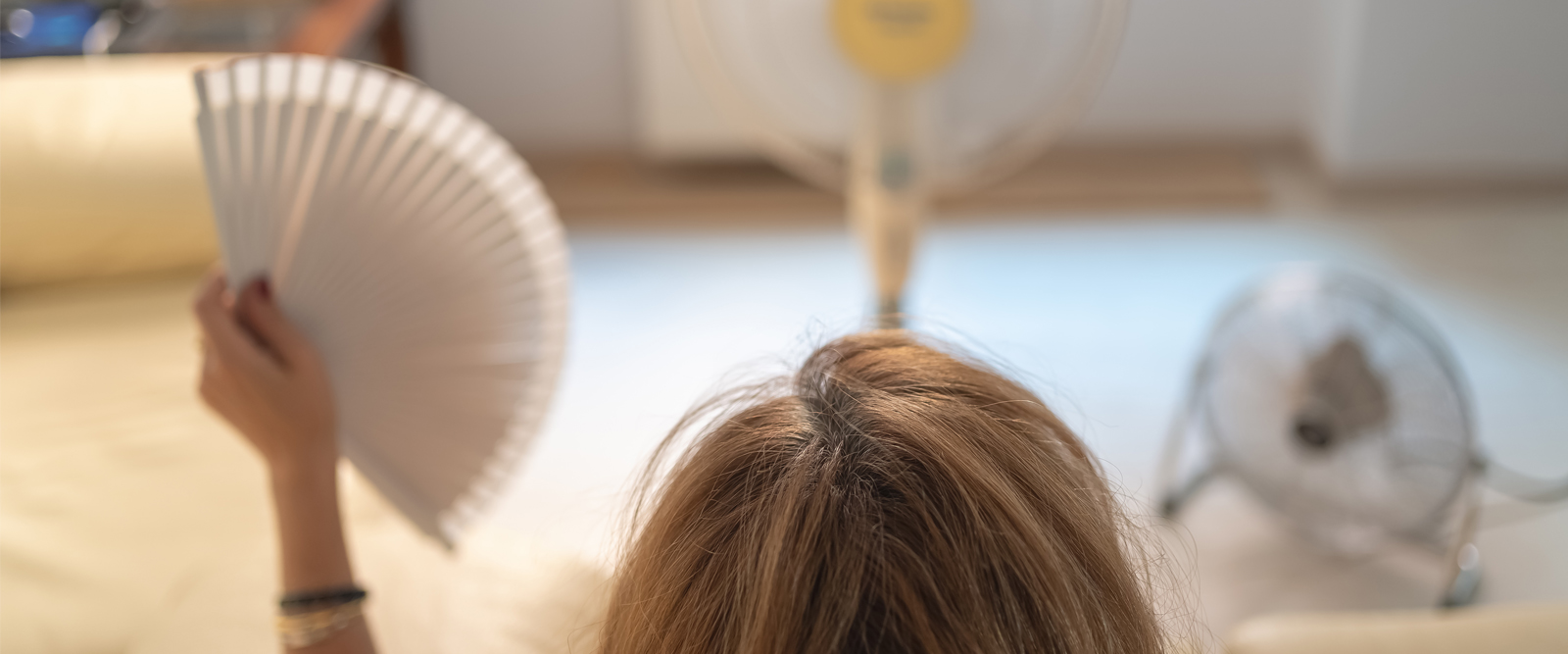A New Menopause Drug for Hot Flashes: Your Questions Answered
An expert explains who might choose the first-of-its-kind nonhormonal medication for hot flashes caused by menopause and how the drug is different.

The FDA recently approved the first-of-its-kind nonhormonal medication, called Veozah, to treat moderate to severe hot flashes caused by menopause. These fleeting sensations of heat, flushing, and sweating, also known as vasomotor symptoms, are the most common symptom during the menopause transition, reported by at least 80% of women, says Dr. Susan Loeb-Zeitlin, an obstetrician and gynecologist at NewYork-Presbyterian/Weill Cornell Medical Center and director of the Women’s Midlife Center at Weill Cornell Medicine.
Hot flashes can last up to five minutes, and some women and gender-nonconforming people may experience them for about seven to 10 years. Black women tend to have more frequent and severe hot flashes.
“Vasomotor symptoms like hot flashes and night sweats are very significant for some women,” says Dr. Loeb-Zeitlin. “It’s great to have an option for those who can’t or won’t use hormone therapy, the most common and effective treatment for these symptoms.”
Dr. Loeb-Zeitlin shares with Health Matters how the new prescription drug for hot flashes works, who it’s for, and who should not take it.

Dr. Susan Loeb-Zeitlin
What is Veozah, and how does it work?
Veozah, the brand name for fezolinetant, targets neurons in the brain that control temperature regulation. These neurons are sensitive to estrogen, so when the hormone declines during menopause, the neurons get extra stimulation, causing hot flashes. Veozah works by blocking a receptor in the brain and decreasing the firing of these neurons.
How do hot flashes affect a woman’s life?
Hot flashes and night sweats can be very disruptive during perimenopause — the years leading up to menopause — and menopause, which begins one year after menstruation has stopped. Vasomotor and other menopause symptoms can prevent women from getting adequate sleep, cause women to miss work, and diminish their overall quality of life for a number of years.
How effective is Veozah?
The studies that led to the drug’s approval showed that it reduced the frequency of hot flashes by about 60%, compared with a 45% reduction in those who received a placebo, and reduced their severity, Nature reported. Hormone therapy is very effective against hot flashes and also has benefits for other menopause symptoms like bone loss and vaginal dryness. I think hormone therapy will remain the mainstay of treatment for hot flashes for those who can use it.
Why would someone take Veozah instead of hormonal therapy?
Hormone therapy boosts the hormones estrogen and progesterone. Women with estrogen-dependent cancers, specifically breast cancer and uterine cancer, and those with a history of blood clots, stroke, and significant heart disease can’t take hormone therapy because it may increase those health risks. So Veozah, which is not a hormone, might be an important option for them.
Who is it approved for?
The FDA approved Veozah as a once-a-day pill for people with moderate to severe hot flashes caused by menopause, and it can be used up to age 65.
What are the side effects?
Some people on the medication had abdominal pain, diarrhea, insomnia, and back pain. It also resulted in elevated liver enzymes in some individuals. Recently, the FDA issued a “black-box warning” (its most serious warning) for Veozah, due to the potential for a rare but serious liver injury. To note, the warning came after one case of serious liver injury; after stopping Veozah, the patient’s symptoms gradually dissipated and the damage was reversed.
The FDA recommends that women get bloodwork to test their liver function before starting Veozah, and then monthly testing for the following two months, and then again at three months, six months, and nine months.
Who shouldn’t be on Veozah?
People with known liver disease, such as cirrhosis, or with severe kidney problems or kidney failure should not take Veozah. It also shouldn’t be taken by those who take medications in a class of drugs called CYP1A2 inhibitors. These include the antibiotics ciprofloxacin (Cipro) and enoxacin (Penetrex), and the antidepressant fluvoxamine (Luvox).
How much does Veozah cost, and will insurance cover it?
The manufacturer has set the price at $550 a month, which may be too expensive for many women. Insurance is likely to cover it in the future, but it will take time.
Do you expect that it will be an important drug in the treatment of hot flashes?
There’s a lot of interest in this drug for hot flashes and other ones like it in development. But it’s a medication that has not been studied for very long. Some people who are really suffering may want to try it, and for them, the benefits might outweigh the risks of trying a new drug. It should be a shared decision you make with your provider. For some patients, Veozah could be an important weapon against hot flashes.
Susan E. Loeb-Zeitlin, M.D., FACOG, is an obstetrician and gynecologist at NewYork-Presbyterian/Weill Cornell Medical Center and an assistant professor of clinical obstetrics and gynecology at Weill Cornell Medicine. She is the director of the Women’s Midlife Center at Weill Cornell Medicine.
Additional Resources
Learn more about NewYork-Presbyterian’s comprehensive menopause services, including the Women’s Midlife Center at Weill Cornell Medicine and the Integrated Women’s Health Program at Columbia University Irving Medical Center.
